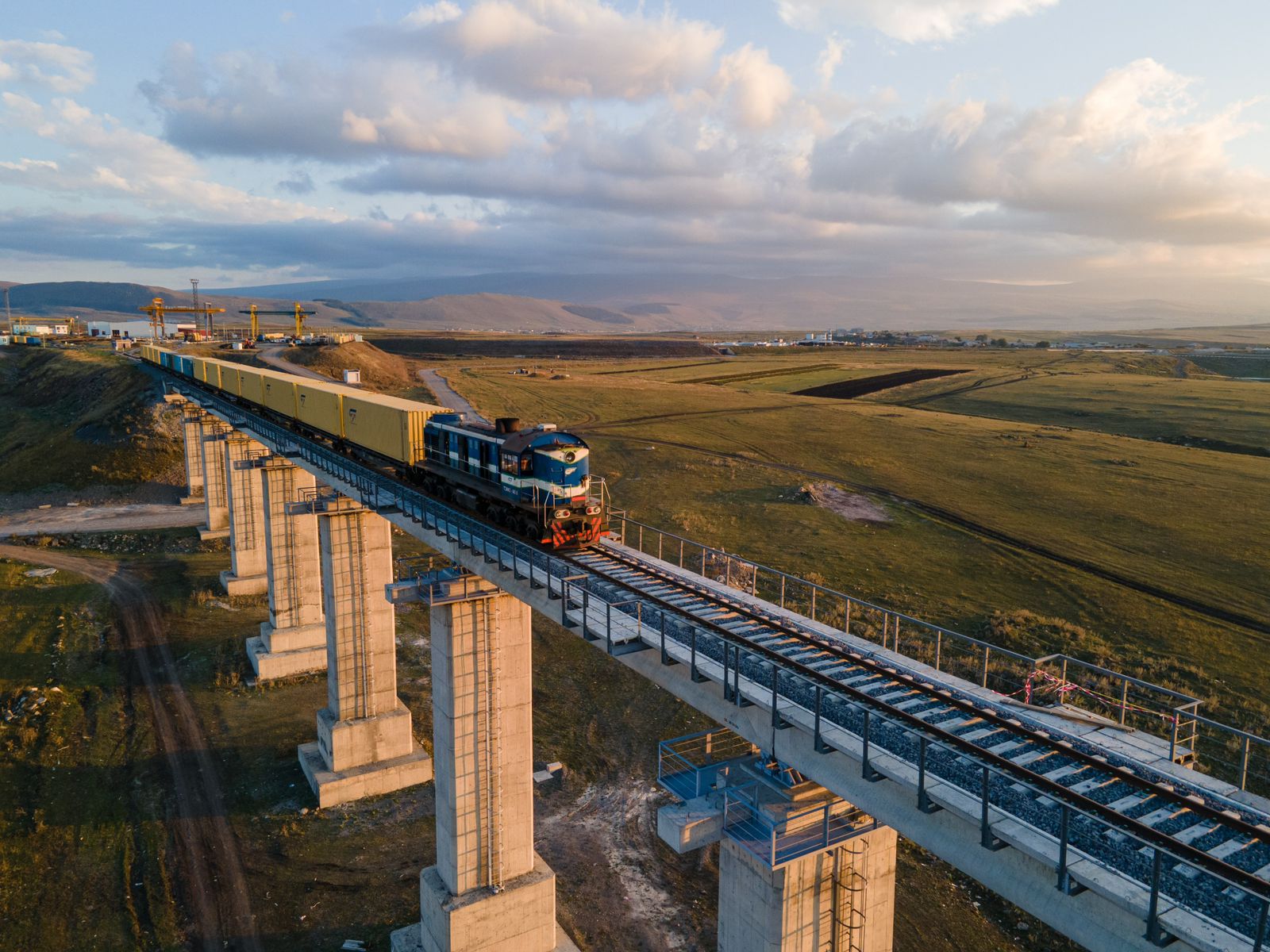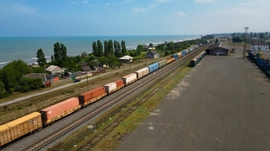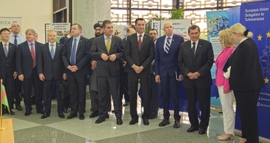The modernized and expanded Georgian segment of the Baku-Tbilisi-Kars (BTK) railway is set to recommence freight operations this month.
Rovshan Rustamov, Chairman of Azerbaijan Railways (ADY), has announced that cargo operations on the BTK railway will resume on May 20, representing a significant milestone following extensive repair, restoration, reconstruction, and expansion efforts along the 184-kilometer Georgian segment of the railway.
“Following the expansion, the annual handling capacity of the BTK has increased from 1 million tons to 5 million tons,” Rustamov has said in an interview with Azertag state news agency.
“The main purpose of modernizing this railway line is to increase the competitiveness of the Middle Corridor and turn the BTK into one of the main transportation arteries of the region,” he added.
The decision to expand the BTK’s Georgian section was prompted by a comprehensive reassessment in 2022, five years after its inauguration. Despite facing challenging terrain and harsh climates, a new project plan, integrating an international project management system based on global standards, facilitated the completion of the works.
Under the five-phase modernization project, a total of 61 kilometers of railway tracks, 98 kilometers of contact network lines, 172 kilometers of 10 kV cables, and 338 kilometers of fiber-optic cables have been installed. Additionally, pedestrian and automobile roads along a 41-kilometer stretch have been asphalted.
The 826-kilometer-long BTK line, connecting Azerbaijan’s railway network to Türkiye’s railroad grid, offers a quicker and more accessible rail link between China, Central Asia, and Europe. Traversing from Baku through Georgia’s capital Tbilisi to Kars in northeast Türkiye, it significantly reduces the overland journey between China and Europe to just 15 days, compared to the previous 25-45 days.
Once fully operational, the modernized BTK railway is expected to handle annual cargo deliveries of up to 17 million tons, offering a substantial boost to Azerbaijan’s rail transit capacity.
Meanwhile, according to Rustamov, last year alone, transit freight transportation by ADY reached 6.8 million tons compared to 3.8 million tons in 2019.
“With the modernized BTK railway, we can now transport more cargo more quickly. That is, with the annual cargo volume increasing from 1 million tons to 5 million tons, transportation volumes and speeds across our country in both East-West and reverse directions will receive a boost,” he highlighted.
Collaborating on the potential of this railway, Azerbaijan and Georgia are in the process of establishing a joint venture. Expected to launch this month, this partnership aims to efficiently operate and maximize the utility of the BTK.
Furthermore, the renovated BTK is anticipated to accommodate more block trains, particularly those traveling from China to European markets on the Middle Corridor. During the first four months of this year alone, the Middle Corridor facilitated a total of 34 block trains, collectively carrying 6,319 TEUs of container cargo. Among these, 10 were transit cargo trains carrying 4,020 TEUs, while the remaining 24 trains transported import cargo, totaling 2,299 TEUs.







 Turkmenistan's Foreign Minister Rashit Meredow and EU's Special Representative for Central Asia Terhi Hakala have discussed prospects for cooperati...
Turkmenistan's Foreign Minister Rashit Meredow and EU's Special Representative for Central Asia Terhi Hakala have discussed prospects for cooperati...
 In a high-profile trial that has gripped the nation, Kuandyk Bishimbayev, Kazakhstan’s former economy minister, has been sentenced to 24 years in p...
In a high-profile trial that has gripped the nation, Kuandyk Bishimbayev, Kazakhstan’s former economy minister, has been sentenced to 24 years in p...
 Foreign Minister of Azerbaijan Jeyhun Bayramov met with his Armenian counterpart Ararat Mirzoyan in Almaty, Kazakhstan, to negotiate the peace agenda.
Foreign Minister of Azerbaijan Jeyhun Bayramov met with his Armenian counterpart Ararat Mirzoyan in Almaty, Kazakhstan, to negotiate the peace agenda.
 Russia is moving forward with what it calls a “special military operation” in Ukraine with its forces advancing in the Kharkiv region.
Russia is moving forward with what it calls a “special military operation” in Ukraine with its forces advancing in the Kharkiv region.



